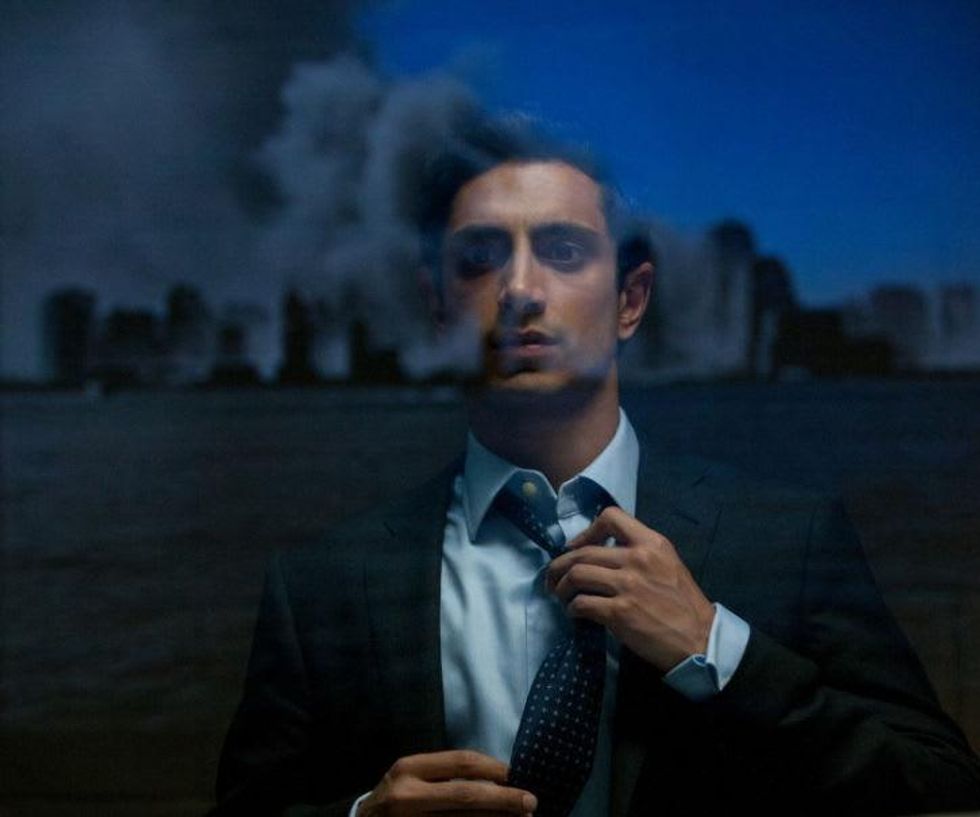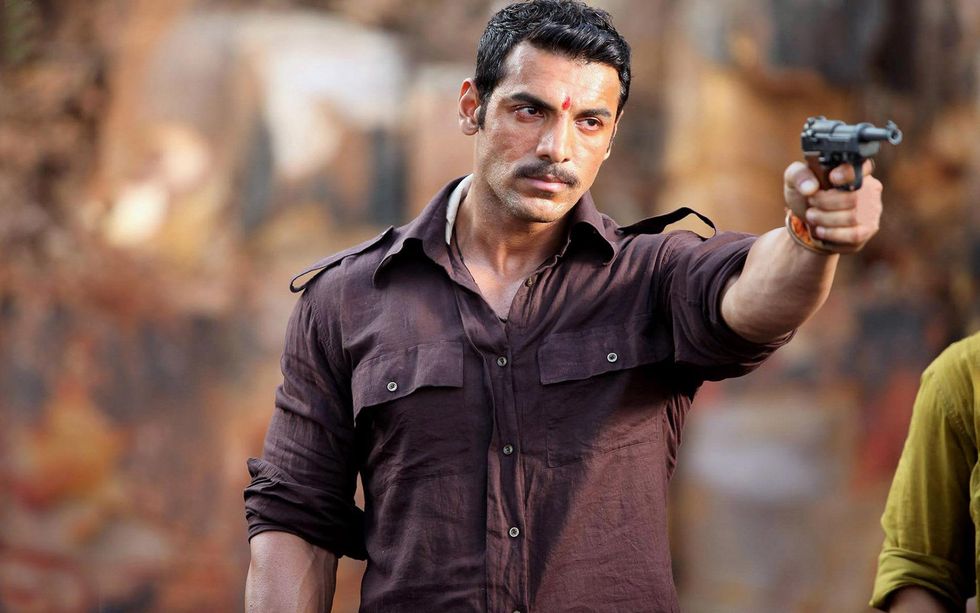Mondo Cinema
The Reluctant Fundamentalist is suspenseful and timely; Texas meth dealer rages in Cook County
Some critics have been using Mohsin Hamid’s novel The Reluctant Fundamentalist more or less as a cudgel to thump Mira Nair’s film adaptation (at the River Oaks 3). Just as even more reviewers no doubt will similarly employ F. Scott Fitzgerald’s The Great Gatsby as a blunt instrument next week while appraising Baz Luhrmann’s cinematic extravaganza.
But here’s the thing: I haven’t read Hamid’s original, so I cannot make any comparisons, flattering or otherwise, between what originally appeared on the page and what Nair and scriptwriter William Wheeler offer in their cinematic reconstitution. All I can do is judge the movie on its own considerable merits.
My verdict: The Reluctant Fundamentalist is an insightful, suspenseful and altogether engrossing piece of work, one that, due to recent tragic events in Boston, comes across – alas – as especially timely and compelling.
What can turn a seemingly ordinary someone into a fanatic who detonates bombs at well-attended public events, or steers skyjacked airliners into landmark buildings? Nair and Wheeler suggest the transformation process can be the result of a thousand slights and insults, fueled by deep-seated resentment of perceived imperialism.
In their movie’s most unsettling scene, Changez Khan (exceptionally well played by Riz Ahmed), a Pakistani-born Princeton grad turned Wall Street whiz, admits that, while watching the 9/11 attack on the Twin Towers, he couldn’t help feeling, despite his love for America, perversely impressed by “the symbolism of it all, the fact that someone had brought America to its knees” in David-versus-Goliath fashion.
What can turn a seemingly ordinary someone into a fanatic who detonates bombs at well-attended public events, or steers skyjacked airliners into landmark buildings?
But does that make Khan – the movie’s protagonist – a true terrorist?
The tantalizing uncertainty about his sympathies percolates just below the surface throughout the film, which is structured as a series of interlocking flashbacks cued by a lengthy 2011 conversation in a Lahore, Pakistan coffeehouse between Khan, who has evolved into “Pakistan’s new militant academic,” and Bobby Lincoln (Liev Schreiber), a journalist with ties to the CIA.
There is a sense of urgency to the conversation: An American professor has been abducted by local militants, and a special ops team is waiting just outside to use enhanced interrogation techniques if Lincoln can’t get Khan, a suspected terrorist sympathizer, to reveal what (if anything) he knows of the professor’s whereabouts.
But Khan is in no hurry. Rather, he takes his time telling the story – which cues all the flashbacks – of how, a decade earlier, he became a ruthlessly successful “economic fundamentalist” while working for a Wall Street firm that specialized in making companies more successful through drastic workforce slashing.
And how, after 9/11, Khan found himself increasingly disillusioned and alienated in a newly paranoid America where many folks took one at his appearance (or his passport), and deemed him guilty until proven innocent. Well, either that, or arbitrarily arrested him, or submitted him to a humiliating strip search.
(It’s certainly great that we aren’t so ready to make snap judgments about people anymore. Oh, wait: Never mind.)
The Reluctant Fundamentalist sometimes is a tad too insistently on the nose while scoring points. Much more often, though, the film impresses with its willingness to avoid easy choices and facile stereotyping. For example, Nair isn’t afraid to depict Khan – and Ahmed isn’t afraid to play him – as never entirely likable, and sometimes offputtingly arrogant. The guy is downright brutal – though, to be fair, not without cause – during a third-act quarrel with his mood-swinging American girlfriend, played by an effectively deglamorized Kate Hudson.
It’s not so much that Nair and Ahmed want us to think Khan deserves the bad things that happen to him. But they clearly don’t want him to be so sympathetic that the audience is tempted to rush to a different kind of judgment.
On the other hand, Jim Cross (Kiefer Sutherland), Khan’s manipulative mentor at the Wall Street firm, never reveals the faintest trace of fear or discomfort about Khan’s Muslim beliefs or Pakistani ancestry, even after the Twin Towers fall.
In fact, you get the impression that Khan could have an “I Heart Bin Laden” poster hanging above his office desk, and Cross wouldn’t care – as long as Khan kept doing his job like a good economic fundamentalist. Cross turns cross only when his student reluctantly rebels.
What’s cooking at 14 Pews?
Before Anson Mount started impressing TV viewers with his self-assured bad-assedness in Hell on Wheels, he was scaring film festivalgoers with his vivid portrayal of an East Texas meth dealer who samples far too much of his own product in Cook County.
Unfortunately, few ticket buyers had an opportunity to the see that gritty and gripping indie movie – the debut directorial effort of Houston lawyer-turned-filmmaker David Pomes – during its fleeting theatrical release. The good news is, the folks at 14 Pews are going to give you a second chance to see the flick at 4 p.m. Saturday. The better news: Director Pomes will be on hand for a post-screening meet-and-greet (complete with beer and music) at the Aurora Street venue.
Director David Pomes will be on hand for a post-screening meet-and-greet (complete with beer and music).
But be forewarned: This is not a pretty picture. Indeed, the entire movie is suffused with the suggestion that something bad could happen at any moment, unless something worse happens first.
Mount is mesmerizing as the profoundly spooky and spooked-out Bump, a backwoods meth dealer who is so far gone that he doesn’t bother hiding his business, or his addiction, from his six-year-old daughter, Deandra (Makenna Fitzsimmons). Indeed, he occasionally offers – only half-jokingly – to teach her how to smoke meth.
Abe (Ryan Donowho), Bump’s teen-age nephew, tries to look out for Deandra while living with his uncle and cousin. But the anxious young man already has his hands full looking out for himself: Having recently kicked his own habit, he finds it hard to stay straight while residing in a house with a meth lab in the kitchen.
When Sonny (Xander Berkeley) – Abe’s father, Bump’s brother -- returns after a lengthy, unexplained absence, Ben dares to hope that things might get better. Trouble is, Sonny has a hidden agenda. And Bump has a loaded shotgun.
Mount plays Bump as a ticking time bomb, always just one temper flare away from bloody mayhem. But the actor also provides effective shadings of character, so that his expression sporadically reveals a flurry of conflicting, contradictory emotions. This is especially true during a disquieting climactic scene in which Bump must choose what matters most, his daughter or his business. His final decision is a shock – yet, all things considered, not a surprise.
And if all that isn’t enough to make you want to visit 14 Pews on Saturday, consider this: Longtime Houston sportswriter and commentator John McClain has a cameo role in Cook County. Yes, he really does.
Other screens, other cinema
At the Museum of Fine Arts, Houston, the eighth edition of Latin Wave: New Films of Latin America continues with screenings throughout the weekend.
But wait, there’s more: On Monday, Houston Symphony conductor Hans Graf will introduce one of his favorite movies – Jean Cocteau’s remarkable Orpheus, a bold reimagining of the Greek legend with the great Jean Marais in the title role – at 7 p.m. Monday at MFAH.
Peter Getzels and Eduardo Lopez’s Harvest of Empire – a provocative documentary based on Juan González’s history of Latino immigration to the United States – will kick off a scheduled one-week run Friday at the Sundance Cinemas.
And Shootout at Wadala, a Bollywood crime drama inspired by a 1982 clash between gangsters and Mumbai police, is now on display for your viewing enjoyment at the AMC Studio 30.


